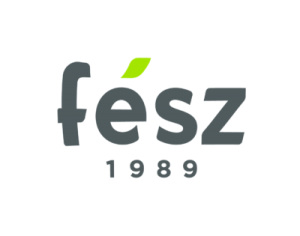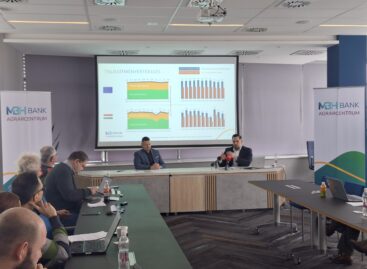Magazine: Consumers prefer Hungarian groceries
Tamás Éder, president of the Federation of Responsible Food Manufacturers (FÉSZ) talked to our magazine about the last year.


Éder Tamás
elnök
Felelős Élelmiszergyártók
Szövetsége
![]() With what kind of results did the food industry end 2018?
With what kind of results did the food industry end 2018?
– The food industry performed better than the industrial average, the production volume index was 4.9 percent. This was primarily the result of stronger domestic sales – the growth was more than 6 percent; export sales were up 2.5 percent. We witnessed a major improvement in the meat industry, which did 8 percent better than in the previous year. From the other bigger sectors it was the vegetable oil one that managed to grow considerably.
![]() What about profitability?
What about profitability?
– The production price of agricultural produce increased by 3 percent on average and salaries elevated by more than 10 percent – at the same time food companies could only set 3 percent higher prices for their products. This means that the food sector’s profitability stagnated at best or perhaps it decreased a little.
![]() Are there urgent problems that influence how the food industry works?
Are there urgent problems that influence how the food industry works?
– For 2019 we calculate with further domestic sales growth – the negative side of this that the increased demand is primarily the result of workers earning more. Since there aren’t enough workers, food companies are forced to invest in automation and digitalisation. There are sector-specific problems too, for instance due to last year’s swine fever epidemic the pig processing sector had lost 30 percent of its export market; luckily they got this share back by then end of the year.
![]() What efforts and successes have characterised the federation’s work?
What efforts and successes have characterised the federation’s work?
– Last summer the Federation of Responsible Food Manufacturers (FÉSZ) – formerly called Federation of Hungarian Food Industries (ÉFOSZ) – started a large-scale project to lay the groundwork for the food industry’s digitalisation. The federation also makes great efforts to strengthen communication with consumers. In just six months Minister of Agriculture Dr István Nagy already met with the representatives of FÉSZ twice – this shows that the ministry is more cooperative than before. //
Related news
KSH: industrial production expanded by 1.8 percent in December compared to the same period of the previous year and by 0.9 percent compared to the previous month
🎧 Hallgasd a cikket: Lejátszás Szünet Folytatás Leállítás Nyelv: Auto…
Read more >MBH AgrárTrend Index: Hungarian agriculture faces significant changes in 2026
🎧 Hallgasd a cikket: Lejátszás Szünet Folytatás Leállítás Nyelv: Auto…
Read more >Related news
How Coca-Cola plans to build more billion-dollar brands
🎧 Hallgasd a cikket: Lejátszás Szünet Folytatás Leállítás Nyelv: Auto…
Read more >Tesco sets out store expansion plans in 2026 including five former Amazon Fresh sites
🎧 Hallgasd a cikket: Lejátszás Szünet Folytatás Leállítás Nyelv: Auto…
Read more >







